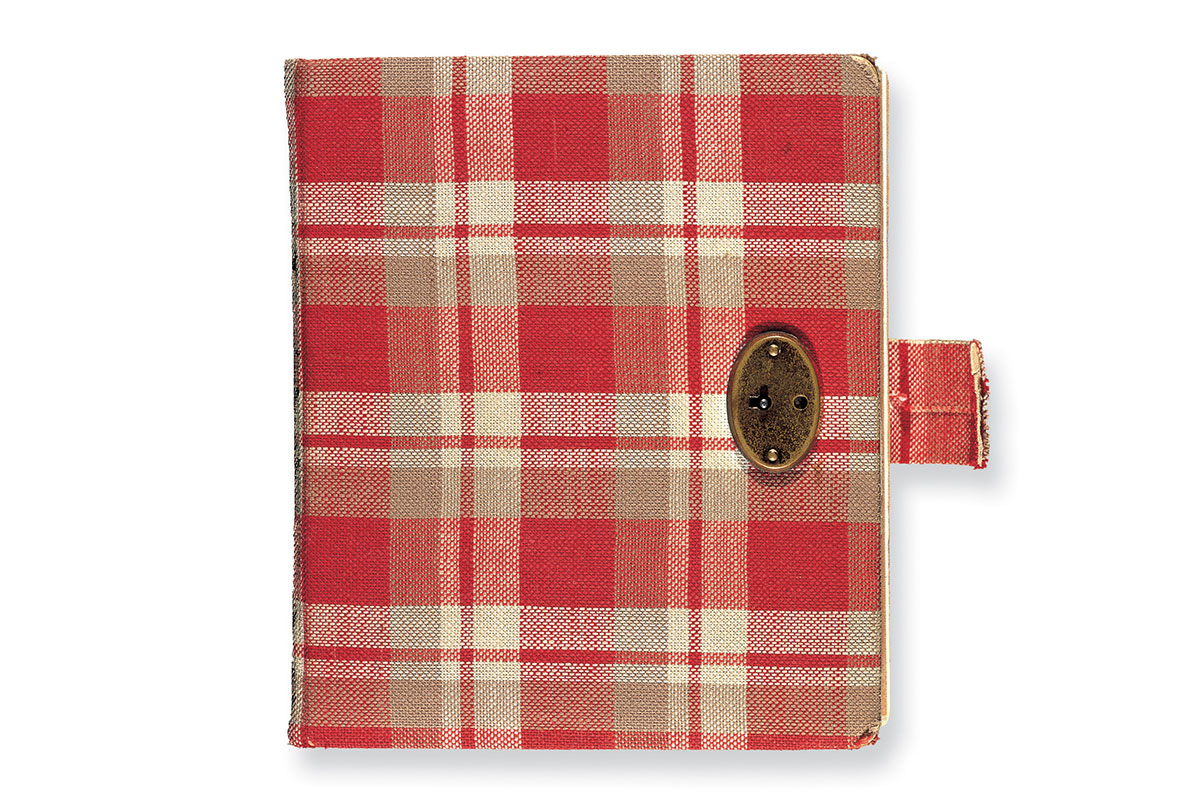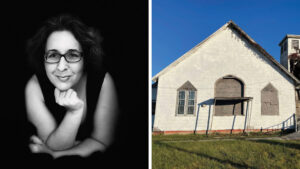Chesapeake Shakespeare Company’s ‘Diary of Anne Frank’ offers a new look at a well-known story of hope in the face of tremendous adversity.
Withthe passing every year of Holocaust survivors and their eyewitness testimonials,Anne Frank’s universal story is more crucial than ever to help reinforce therallying cry of “Never Again,” says Ian Gallanar, founder and artistic directorof the Chesapeake Shakespeare Company in Baltimore.
“Itgoes without saying that it’s incredibly important to teach about theHolocaust,” Gallanar says. “That includes telling multiple generations aboutwhat happened. ‘The Diary of Anne Frank’ is a play that is sophisticated,complex and accessible to both younger and older generations.”
From April 26 to May 26, the Chesapeake Shakespeare Company will present “The Diary of Anne Frank” — a play by Frances Goodrich and Albert Hackett based on “Anne Frank: The Diary of a Young Girl” — at the theater at 7 S. Calvert St. The production is part of what the Baltimore arts community — including the Baltimore Museum of Art, Morgan State University’s Carl J. Murphy Fine Arts Center, and the Jewish Museum of Maryland — is calling a “Spring of Remembrance.”
“Thereare a handful of organizations doing Holocaust-related exhibits, so we haveteamed up to create a single outreach program,” says Lesley Malin, managing directorof the Chesapeake Shakespeare Company. “The Holocaust is something being less taught,and we recognize that the last of the Holocaust survivors are dying off. Forthe newer generations, that living link is disappearing so it’s especiallyimportant to focus on this now.”
“TheDiary of Anne Frank” is a contemporary adaptation of the classic book — asadapted by playwright Wendy Kesselman — consisting of seven long scenes, mostof them beginning with a family trying to establish a sense of normalcy in ahighly abnormal situation and ending with reminders of the horrificcircumstances in which they find themselves.
“Myfeelings about the diary and the play are that it’s an amazing intersectionbetween the diary of a little girl growing up with all the universal issues ofgrowing up, while at the same time dealing with the most critical ofcircumstances,” says Eve Muson, the show’s director. “It’s a family dramaplayed out under extreme pressure within three rooms.”

© AFF/AFH – Basel/Amsterdam
“TheDiary of Anne Frank” begins on the protagonist’s 13th birthday in June of 1942,with entries about friends, schoolyard gossip and crushes. The play ends whenAnne is 15, with diary entries about isolation, loneliness and coping with her Jewishidentity in the Nazi-occupied Netherlands.
“What we don’t always remember is that Anne was a brilliant writer,” says Muson, an associate professor in the theater department at the University of Maryland, Baltimore County. “During her time in the annex, the family heard on the radio that the Netherlands wanted to collect diaries, letters and journals from regular people during the war. Anne got inspired by this call and rewrote her diary in anticipation of submitting it for publication. So this piece of work isn’t just a young girl’s stream of consciousness. It shows the development of a very talented and sensitive artist.”
Thetwo families living in the secret annex with Anne were eventually discovered bythe Nazis, with the exception of Anne’s father, Otto Frank, and perished in theHolocaust. After the war, Otto Frank made his way back to the Netherlands fromAuschwitz and helped realize Anne’s dream of becoming a writer by publishingher diary. The book became an international phenomenon and has been used as aneducational tool and an introduction to the Holocaust.
“Formany kids, the diary is their first exposure into studying the Holocaust,” saysMuson. “My sister is an eighth-grade teacher, and this diary is still these students’primary document and the door that takes them into their Holocaust studies.”
Inaddition to the performances for the general public, the Chesapeake ShakespeareCompany will present matinee performances for students from five schools in theBaltimore-Washington corridor. The play will be presented by specialarrangement with Dramatists Play Service of New York.
“Thisis a story that needs to be told over and over again,” says Gallanar. ”Anti-Semitismhas been in the news recently, and this kind of work can be an antidote tothose kinds of beliefs. Theater has a way of uniquely showing what we have incommon as human beings, and if people can walk away with a clear understanding thatwe are all in this together, I think our work has been successful.”
For information, visit chesapeakeshakespeare.com.
Aliza Friedlander isa Baltimore-based freelance writer.





